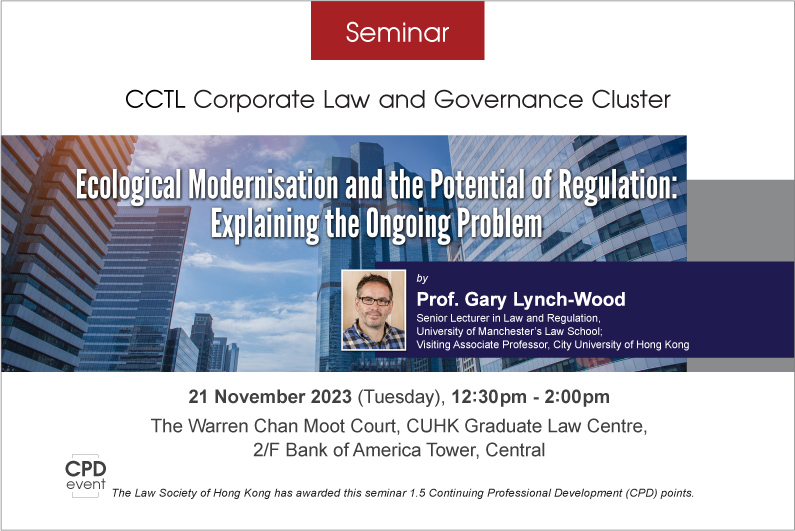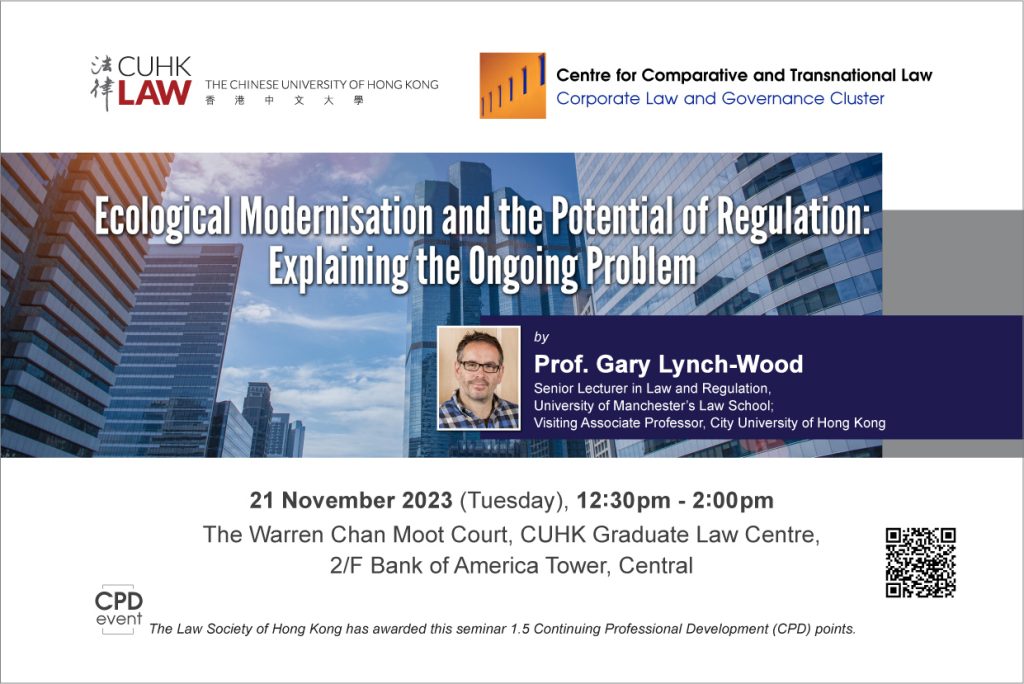Emerging in the 1980s as a counter to the deindustrialization view that had prevailed, ecological modernisation is a greening of the economy theory which suggests that firms, states and markets can work together to stimulate resource-efficient innovation to protect the environment. The role of regulation, whilst always seen as a necessary government activity, has never been fully settled. In trying to advance the regulation debate, this paper focuses on why private enterprises respond to regulation differently and why this becomes a significant regulatory challenge when we factor in the requirements and demands of regulation. This leads to the identification of critical regulatory trade-offs, which when recognised by policy makers, would enable them to better realise the potential of, and barriers to, the process of ecological modernisation.
About the Speaker:
Gary Lynch-Wood is a Senior Lecturer in Law and Regulation at the University of Manchester’s Law School, and is currently a Visiting Associate Professor at the City University of Hong Kong. Educated in England, he holds both undergraduate and postgraduate degrees in law. Gary specialises in the field of regulation, and he has published numerous articles on various aspects of the topic in leading journals, including: Journal of Law and Society, Journal of Environmental Law, Regulation & Governance, Environmental Politics, Journal of Business Ethics, Journal of Environmental Planning and Management, and the Medical Law Review. His recent co-authored book, The Structure of Regulation, provides an exploration of the factors that combine to determine the form of regulatory problems, the overall success or failure of regulation, and the trade-offs involved when regulating. Using environmental regulation as a basis for analysis, this book puts forward a theoretical framework for the design of more effective regulation.
The Law Society of Hong Kong has awarded this seminar 1.5 Continuing Professional Development (CPD) points.


0 Comments